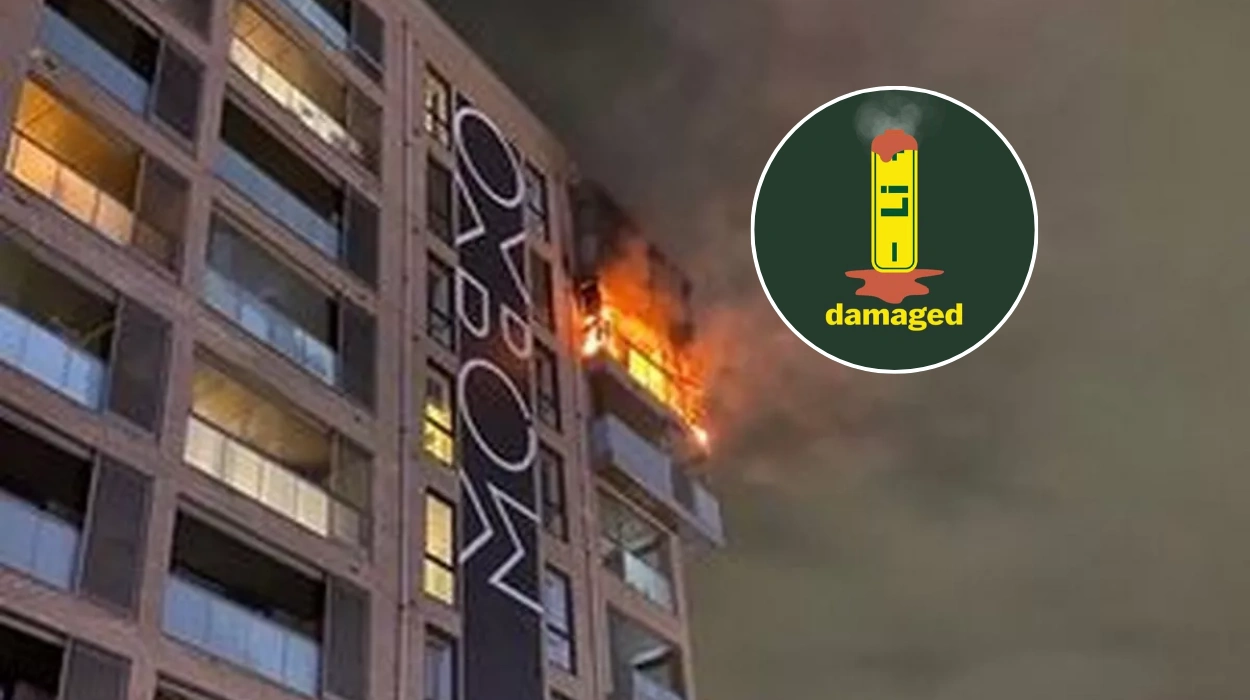Key Points
- Tower Hamlets Council launches the Dispose Safe campaign to combat fires caused by discarded lithium-ion batteries in waste trucks.
- 23 fires linked to lithium-ion batteries have occurred in Tower Hamlets, including 9 in waste collection vehicles.
- Nationally, over 1,200 bin lorry and waste site fires last year involved lithium-ion batteries, a 71% increase in one year (NFCC data).
- Mayor Lutfur Rahman emphasises the national scale of the problem and calls for coordinated action from residents, councils, and government.
- Cllr Shafi Ahmed highlights the dangers to refuse crews, service disruption due to damaged vehicles, and the effectiveness of educational campaigns like Dispose Safe.
- The Council urges safe recycling of batteries to prevent fires and protect frontline workers and services.
What is the Dispose Safe campaign launched by Tower Hamlets Council?
Tower Hamlets Council has initiated a new public safety initiative named Dispose Safe aimed at tackling the escalating problem of fires caused by improperly discarded lithium-ion batteries inside waste and recycling vehicles. The campaign responds to an alarming rise in incidents where these batteries ignite after being crushed during waste collection, creating significant hazards for the council’s bin crews and disrupting service delivery across the borough.
How significant is the battery fire problem in Tower Hamlets and nationally?
According to figures shared by Mayor Lutfur Rahman, Tower Hamlets alone experienced 23 fires linked to lithium-ion batteries in the past year. Notably, nine of these fires occurred inside the borough’s waste collection vehicles, directly threatening the safety of frontline waste crews.
Nationally, data from the National Fire Chiefs Council (NFCC) reveals a broader crisis: more than 1,200 bin lorry and waste site fires were linked to lithium-ion batteries last year, marking a substantial 71 per cent increase in just one year. This surge emphasises the growing risk and widespread nature of the problem beyond a single locality.
What are the risks and effects of lithium-ion battery fires on waste crews and public services?
Mayor Lutfur Rahman, quoted by multiple media outlets, stressed the dual danger posed by these fires:
“This is not just a Tower Hamlets issue. It is a national problem that needs a national response,”
he said.
“Every time a battery is thrown into the bin, it risks exploding when crushed inside a waste truck. That puts our frontline crews in danger, damages expensive vehicles and causes serious delays to residents’ collections.”
Cllr Shafi Ahmed, the Cabinet Member for Environment and Climate Emergency, echoed these sentiments, highlighting the direct threat to refuse workers:
“Our refuse crews have been placed in real danger by fires started from something as small as a vape battery,” Ahmed remarked.
“These fires are frightening, unpredictable and completely avoidable. They not only threaten the safety of our staff but also lead to missed collections and major service delays for residents when trucks are damaged or taken out of service.”
Why is Dispose Safe considered an effective campaign?
According to Cllr Shafi Ahmed, Dispose Safe builds on prior successful efforts like the Charge Safe campaign, which aimed to reduce lithium-ion battery fires through public education. Dispose Safe provides a practical and clear tool for councils to visually demonstrate the risks associated with incorrect battery disposal and to educate the public on safe recycling methods.
“We know campaigns like Charge Safe make a real difference. Dispose Safe continues that work with a practical, visual tool that any council can use to educate residents about the risks and prevent dangerous fires,” Ahmed explained.
What calls to action are being made for residents and government?
Tower Hamlets Council is strongly urging both residents and partner organisations to participate actively in Dispose Safe by responsibly recycling batteries instead of disposing of them in general waste bins. The campaign underlines that prevention is straightforward: batteries should never be binned but recycled safely to prevent these hazardous fires.
At the national level, both the Mayor and Cllr Ahmed have called for broader recognition and coordinated efforts:
“We are calling on residents, councils and the Government to take this issue seriously. Through our Dispose Safe campaign, we are showing that prevention is simple: do not bin it, recycle it safely. Together, we can stop these fires before they start,” said Mayor Rahman.
“Local authorities are on the frontline of this issue; we need national coordination and proper support to protect waste crews and keep essential services running safely,” added Cllr Ahmed.
What are the wider implications of the lithium-ion battery fire crisis?
The issue of lithium-ion battery fires in waste and recycling facilities touches on public safety, environmental management, and operational challenges for local authorities. The rising number of incidents reflects both increased battery usage in consumer electronics, e-cigarettes, and other devices, and gaps in public awareness and disposal infrastructure.
According to National Fire Chiefs Council figures reported by The Guardian and other news outlets, the dramatic uptick in battery-related fires poses:
- Significant occupational hazards to waste management workers
- Disruptions and delays in critical refuse collection services affecting residents’ daily lives
- Financial strain on councils due to vehicle damage and service recovery costs
How are other councils and organisations responding?
Within the UK, Dispose Safe aligns with other initiatives targeting the fire risk associated with lithium-ion batteries. Many councils have launched awareness drives, implemented battery recycling points, and worked with manufacturers to reduce the risks posed by faulty or improperly discarded batteries.
Environmental groups and fire safety organisations are also advocating for clearer public guidance and regulations to mandate safer battery handling and disposal.
Related News:
- Plans submitted to demolish vacant Bow tower block to make way for 145 new social rent homes and new community centre
- Tower Hamlets Launches Mayor’s Accelerated Housing Programme for Affordable Homes
- Tower Hamlets Approves 53 Social Rent Homes at Albert Jacob House
- Tower Hamlets Mile End Co-op & Shops Fined for Underage Sales
